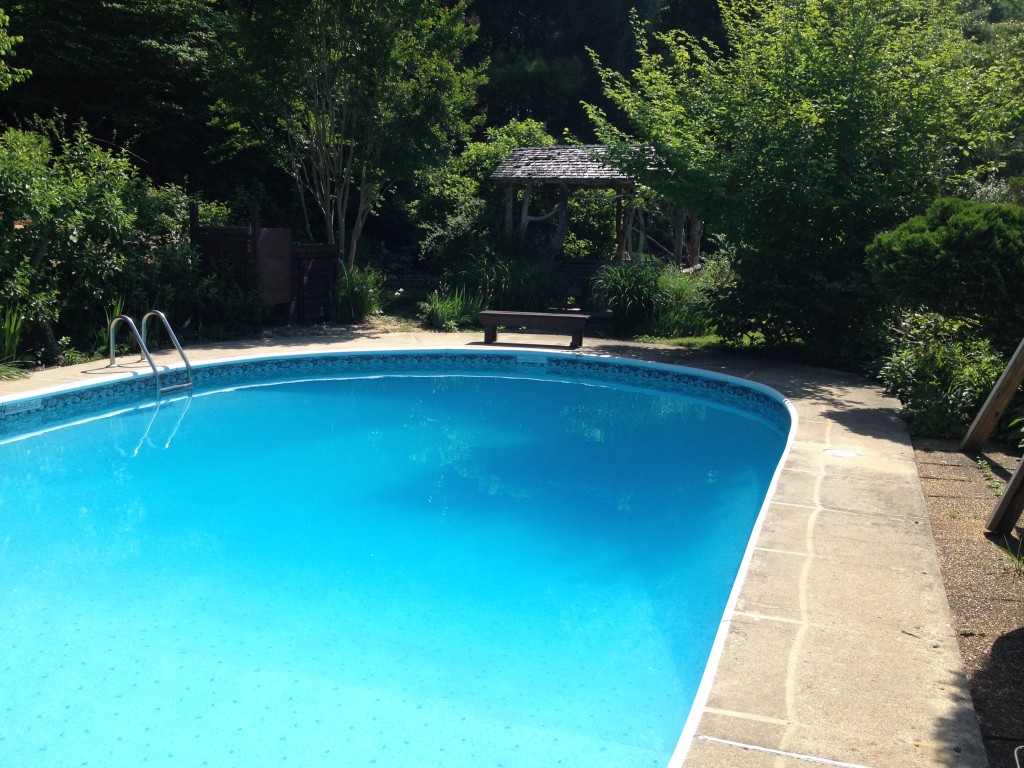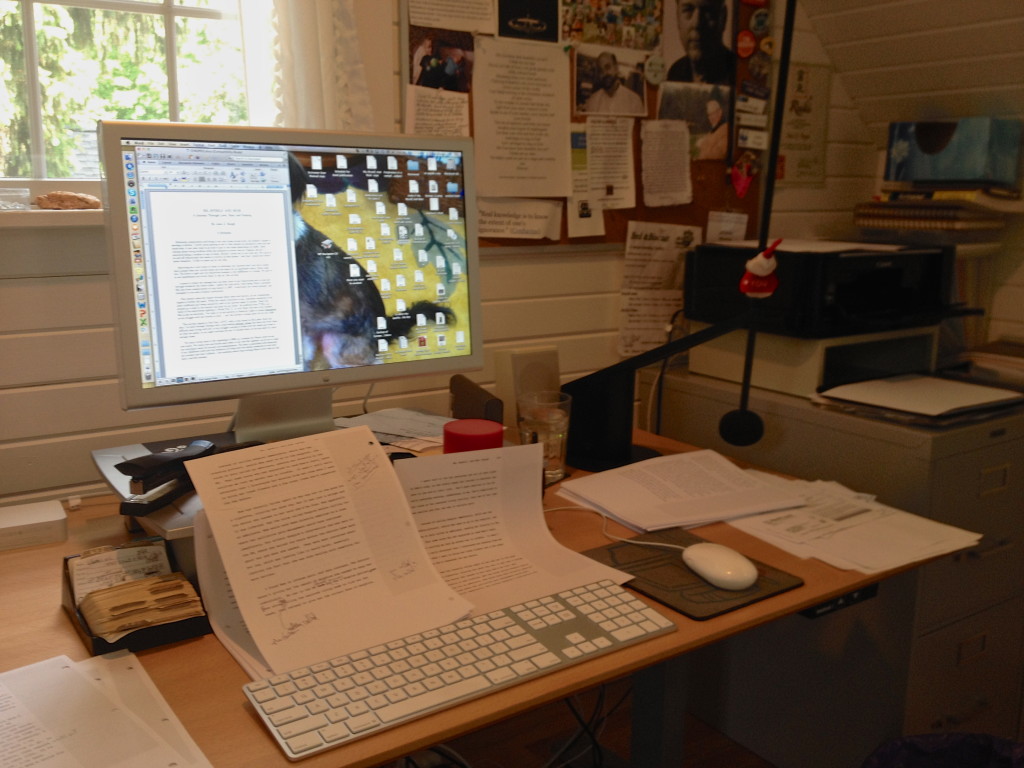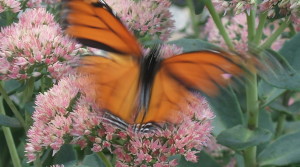 It’s June. Half the year is shot. I was glad to see winter melt into spring, but the worst of Virginia weather is before us with its heat and humidity. Summer is not my favorite time of year here. Spring and the fall are my favorite seasons at the base of the Blue Ridge Mountains. On the best of days the temperature is just right, somewhere in the mid-seventies. There’s usually a nice breeze and lots of sunshine. Often afternoon showers water my garden for me.
It’s June. Half the year is shot. I was glad to see winter melt into spring, but the worst of Virginia weather is before us with its heat and humidity. Summer is not my favorite time of year here. Spring and the fall are my favorite seasons at the base of the Blue Ridge Mountains. On the best of days the temperature is just right, somewhere in the mid-seventies. There’s usually a nice breeze and lots of sunshine. Often afternoon showers water my garden for me.
I rise early, walk the dogs, then I leave the dogs behind and go on what I call a “Hood Hike.” I pick up my speed and get my heart pumping, rather than lollygagging around every shrub and blade of grass, so that Max and Sam can read the doggie newspaper.
There are lots of hills in the neighborhood. They work just about every muscle in my lower body. A former neighbor named the worst one, “Killer Hill.” I don’t even like driving up it. It feels like I’m shooting for the moon. But it’s rather short and sweet and I try to do it a couple of times a week to really get my heart going. I’ve seen several people run up, but I’d rather die.
This past winter on one of our worst snow days, the kids in the area built moguls on that snowy incline, sliding down on sleds and trays over, and through their hand-made obstacle course. Parents stood at either end guarding the route so that nobody would get hit by a car. Most of us never use that hill under those conditions anyway. It’s too steep and would be impossible to navigate unless you have four-wheel drive.
With warmer temperatures just days away, I’m beginning to plan my summer exercise strategy. On hot days I’ll get up even earlier to walk. But if I can’t get myself out of bed, I’ll use my old cross-trainer in my air-conditioned studio. I could also walk at dusk, but sometimes it’s even too hot then.
For a few years now I’ve often spent hot days cooling off in my neighbors pool. But they’re filling it in now. I don’t blame them a bit. It’s a lot of work to keep a pool clean. They also have two young grandchildren who visit frequently. Those kids would need to wear life preservers all the time to keep the adults from stressing out. However, there is a very nice city pool nearby that I’ll probably start going to during lap time, when there are no kids making waves.
Exercising my mind, I’ll spend several hours each day sitting at my computer as I rewrite my memoir. I have already gotten started and am having lots of fun with it. I enjoy this part of the process even more than writing the first draft. Now I have all the puzzle pieces before me. All I have to do is put them back together again in a new way. It’s like working on one of those huge, complicated jig-saw puzzles you open up when you visit the seashore during the late fall or early winter and the wind is howling. It’s too cold to walk on the beach and you don’t feel like reading.
It is easier said than done, of course. There is always lots of frustration included in the fun. But when the puzzle is finally put together in just the right way, it spells out masterpiece.
What do you do to exercise your body and brain during the heat of summer?




